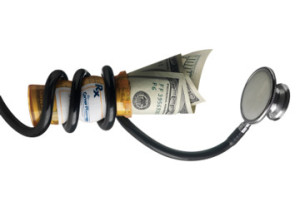January 25, 2016
 What is life insurance?
What is life insurance?
One of the key concepts of life insurance is that it can pay any dependents you have a cash lump sum or regular payouts upon your death. It has been designed as a way of providing you with a level of reassurance that those who are dependent on you are looked after should you no longer be around.
Of course, the amount of money that will be paid out depends on the amount of cover that you purchase. You may also make decisions as to how it will be paid out and whether the money is earmarked to cover particular payments such as rent or a mortgage.
There are a couple of main types:
– The term life insurance policy runs over a fixed period, and will only pay out should you die within that period. No lump sum is redeemable at the conclusion of a term policy.
– The whole-of-life policy pays out irrespective of when you die.
What is not covered?
Life insurance does not cover disability or illness. The majority of policies have exclusions. As an example, if your death is cause by alcohol or drug abuse, there is no cover.
Should you have a particularly serious health problem when the cover is taken out, this may also be excluded from payout.
Are you in need of it?
If you have dependents – a partner who is dependent on your income, school aged children, et cetera – if you die, a life insurance policy may provide for them.
If you are unable to rely on governmental help for your family – perhaps the amount is too small – then life insurance becomes a necessity.
Who does not need it?
Your partner may earn enough income for your family to be comfortable, or you may be single, in which case, life insurance may not be required.
How much does life insurance cost?
Life insurance can be good value. Depending on your circumstances, a few pence each day can be plenty enough to provide your family with financial protection. In fact, on average, 100k life cover for a period of 10 years, for those who do not smoke and are aged 54 years, works out at less than £1 a day.
Nevertheless, monthly payments, which are also referred to as premiums, can and do vary. Thus, it’s wise policy to shop around and to find out precisely what will be covered given the amount that you are paying.
There are a number of factors that impact the amount you will pay for life insurance. That includes the policy length, the amount you wish to cover, your current health status, your current age, whether you smoke, and your current lifestyle.
As an example, a younger person who is less likely to die on account of a medical condition will enjoy a cheaper life insurance policy than otherwise.
Do you already have life insurance?
You may have an employee package which includes something called “death in service” benefits. In which case, this covers you for a certain multiple of your income and as such, you may not be in need of any life insurance.
You do need assess whether this policy will provide enough cover in the event of your death or whether you should opt for additional cover.
Do keep in mind that if you no longer work for this employer, you will lose your coverage under this policy.
Consider other forms of insurance
Life insurance will cover a worst-case scenario, though you should also consider other matters such as bill payments and your mortgage if you are unable to work due to injury or illness.
You may benefit from income protection insurance. Income protection insurance provides for regular payments if you are unable to work on account of injury or illness.
Perhaps instead you need critical illness insurance. Critical illness insurance provides you with a lump sum which is tax-free should you be diagnosed with a serious illness that is under the provision of your policy.
Think also about payment protection insurance, which is a policy that will help you to maintain any regular payments if you are unable to work – maybe because you are ill, you’ve suffered an accident, or you have been made redundant.
You might be in need of short term protection insurance. This is a solution which provides short term insurance cover that can help you to pay for any essential outgoings if you are unable to work for any reason.
Tags:
budgeting,
Claims,
Coverage,
economy,
insurance,
investments,
life insurance,
money,
Returns
October 23, 2013
 Back when life insurance first came out, when it was common to have salesmen come knocking at the door, the odds of dying young were higher than they are now. Many illnesses that are treatable now were often fatal. Men, and women, were concerned with leaving their families with nothing and shouldering the burden of funeral costs on their own. Because of the advances in medicine, many of the illnesses that used to be fatal are now curable. With these advances, though, come the costs of treatment and care. That is why it is important for people of any age to look into no medical critical illness insurance.
Back when life insurance first came out, when it was common to have salesmen come knocking at the door, the odds of dying young were higher than they are now. Many illnesses that are treatable now were often fatal. Men, and women, were concerned with leaving their families with nothing and shouldering the burden of funeral costs on their own. Because of the advances in medicine, many of the illnesses that used to be fatal are now curable. With these advances, though, come the costs of treatment and care. That is why it is important for people of any age to look into no medical critical illness insurance.
It is estimated that in 2013 alone, over 180,000 people will be diagnosed with cancer. Over 46% of men and 41% of women may develop cancer sometime in their lifetime, and while the number of new cancer cases per year increase, and the odds of having cancer have gone up. So to, have the odds of surviving. Breast cancer, for example, has seen a decrease in death rates by 42% since 1986. So, while more people are being diagnosed with cancer, the odds of beating it (depending on the type of cancer) have gotten considerably better. Because of facts like this, rather than simply focusing on life insurance, getting a quote for no medical critical illness insurance should be a priority for everyone.
No medical critical illness insurance coverage takes care of the costs that may not be covered under healthcare or private plans. Costs such as: childcare, lost wages, travel costs, mortgage payments or other bills. This type of insurance pays out a lump sum upon diagnosis and survival that can be used to cover whatever shortfalls there are. With no medical critical illness coverage, there is no need to have a medical; therefore, everyone may qualify for coverage regardless of health.
While many illnesses such as cancer, stroke, or a heart attack may not happen to someone in their twenties, the best time to look at no medical critical illness insurance is before issues come up. Critical illness insurance will not cover pre existing conditions, so by purchasing coverage when in good health and young you will have coverage for future illnesses and save money as well. When purchased earlier in life, rates tend to cheaper as the odds of having illness occur are lower at that time.
Being diagnosed with cancer no longer means dying from it. Every day more and more people are surviving illnesses once thought incurable. With over 87% of the Canadian populace expected to be diagnosed with cancer at least once within their lifetime, it is important to think about getting a free no medical critical illness insurance quote as soon as possible.
NoMedicalLifeInsurance.ca is an initiative of independent insurance expert Tamara Humphries and LSM Insurance. They have unique expertise in finding the best possible rate for no medical critical illness insurance their team has access to and uses the most up-to-date financial planning software from their insurance carrier partners. They focus on preparing the best possible package for each client’s specific situation and needs.
Tags:
Claims,
Coverage,
Health Insurance,
insurance,
investment,
life insurance,
money
July 15, 2013
 Most people know how important it is to have life insurance and to protect your assets, but an often overlooked aspect is protecting the most important asset you have – your income.
Most people know how important it is to have life insurance and to protect your assets, but an often overlooked aspect is protecting the most important asset you have – your income.
Most people heavily depend on their monthly income to provide for their family, pay off loan debts and keep up with other financial responsibilities.
The important thing to remember is that you can never know what could happen – and have to be prepared to handle your family’s financial situation if something were to go wrong.
Just ask yourself a few simple questions – what would you do if you’d become ill and wouldn’t be able to work for a few months? Would you still be able to provide sufficiently for your family?
A month or two may not seem like a lot of time – it could be a relatively minor mishap as a severe case of the flu or a broken leg, something that would keep you from working, and that could still have disastrous consequences on your family’s financial state.
What about an even worse scenario – if something was to happen to you and you wouldn’t be able to work again, either because of a permanent injury or death – how would you provide for your family?
Also, would you be able to set up your kids for their future – pay for their education?
Think about these questions and then it will become clear to you if you need health insurance. Basically, if you don’t have a really significant amount in savings and are dependent on your consistent income to meet all of your financial responsibilities, income protection is one of the most important things in making sure your family will be taken care of, no matter what.
There are plenty different plans you can choose from, but you should make sure that you got all the possible scenarios covered.
That includes short term income replacement – when you would be insured for the full or at least a significant amount of your monthly income and would be compensated for the period that you’d be unable to work.
You also need insurance in case something were to happen that makes you unable to work ever again – your family would have to be provided for, so insurance with a payout in the case of disability of death is also very important.
Finally, consider that not all expenses are direct – for instance, even if you wouldn’t consider your children’s education a regular expense, you still have to save money in order to provide for them, so you have to have an income protection plan that would cover the costs that will arise in the future – that, for instance, if something were to happen to you, your children would still get the proper education.
These are just a few examples of why income protection can be such a valuable asset – after all, in the year 2013 you can never be sure about your financial situation because of the still unstable economy, so protecting your family in as many ways as you can is critical.
Income protection is just another way of getting a little safer – this way you can create at least a few safety nets that will cushion the financial hit if something unexpected were to happen.
Romayne Warner is a full time self-employed blogging fanatic. Obsessed with finding small ways to save money every day, she enjoys sharing her frugal lifestyle tips and tricks with the world, she regularly writes about saving money.
Tags:
budgeting,
economy,
financial planning,
income,
insurance,
life insurance,
money
February 14, 2013
 If you are considering purchasing a life insurance policy in order to protect your family in the event of your own untimely demise, there are a few different types of plans that need to be taken into consideration. Each has their own pros and cons, and covers you in a variety of different types of situations. Several of the more common types of life insurance policies that you should study in-depth include;
If you are considering purchasing a life insurance policy in order to protect your family in the event of your own untimely demise, there are a few different types of plans that need to be taken into consideration. Each has their own pros and cons, and covers you in a variety of different types of situations. Several of the more common types of life insurance policies that you should study in-depth include;
Term life insurance is the most basic form of life insurance that currently exist. You purchase coverage for a price, for a specified amount of time. If the individual that owns the policy were to die at any point during that time, the beneficiary of the policy would receive the value of the policy. It is easy to see why term life insurance has become a popular option for individuals that want to secure their family in the event of their untimely passing.
Whole life insurance is actually very similar to term life insurance, but differs in one major aspect. Instead of only covering you for a specified amount of time, whole life insurance actually covers you for the entirety of your life. With the purchase of your policy, premiums for whole life insurance will remain constant throughout the life of the policy.
Universal life insurance is another common type of insurance that is offered by a wide variety of different companies. Universal life differs from the other options because it allows you to place any amount into the plan, over a set minimum premium amount. The company will in choosing investment vehicle, usually consisting of bonds and mortgages. The returns from these investments going to cash value account, which you can use against premiums, or allow you to build upon your policy. Depending on the type of universal life insurance policy that you choose, the beneficiary you may receive different types of payouts, with the most common type of payout being the face value of the policy based on the investments and premiums.
Another common type of life insurance is variable policy life insurance. With variable life insurance, there are going to be a wide range of different investment products that are available to you, including stocks that allow you to grow your life insurance fund for your beneficiary. Returns on investments can offset the cost of premiums with these plans, and beneficiaries usually receive either the face value of the policy, or the face value of the policy plus part of the proceeds found within the cash account.
Tags:
Claims,
Coverage,
financial planning,
insurance,
investments,
life insurance,
money,
Returns
December 4, 2011
 Before you can find the best life insurance quotes, you may need to reflect on what it is that you mean by best.
Before you can find the best life insurance quotes, you may need to reflect on what it is that you mean by best.
For example, are the best life insurance quotes those that are the cheapest or would you consider a policy which offered the highest lump sum pay out, to be the best?
Types of cover
While the basic principle of a lump sum payment to your family should you die remains the same, there are different types of life insurance policy available. There are also a number of ways that you may typically tailor the type you choose to match your own particular set of circumstances.
So, for example, you may opt for a policy that has:
• a lump sum payout, which decreases over time to tie in with a repayment type mortgage where the balance outstanding also decreases with each repayment you make – this is a decreasing term policy.
• a lump sum agreed at the outset of the policy and which doesn’t change over time – this is called a level term policy.
It may be worth noting that for either of these options, the monthly premium is likely to remain the same over the term of the policy.
You may also be able to combine this type of cover with critical illness insurance, which may provide a lump sum in the event that you are diagnosed with a life threatening illness.
Options
Once you have chosen the type of cover that you’d like, you may then need to choose:
• how long to you want the cover to last (the term of the policy) and this might correspond to the length of time your mortgage has to run or how long you have until you retire etc.
• the amount of cover you want (the size of the lump sum) – again, this may be tied into the amount of mortgage you have outstanding or an amount to provide your family with a bit extra once all the major bills were taken care of.
Premium prices will vary depending on the options that you select.
Tags:
best insurance,
financial planning,
Future finance planning,
insurance,
Insurance policies,
life insurance,
life insurance quotes,
personal finance,
protect your life,
save your life financially






Recent Comments